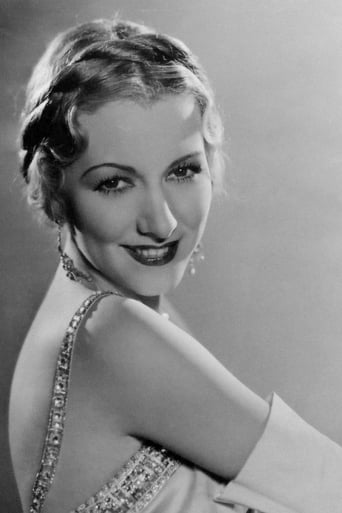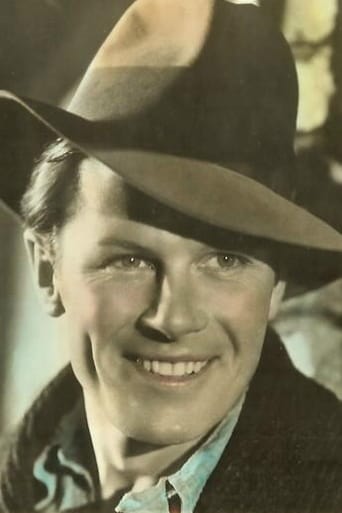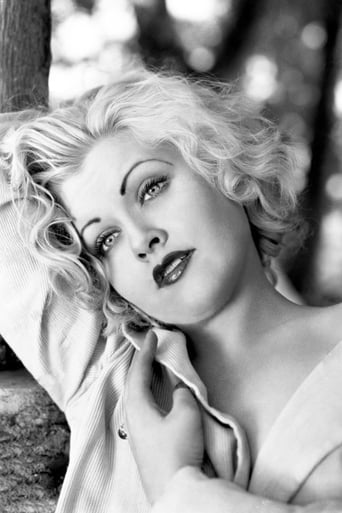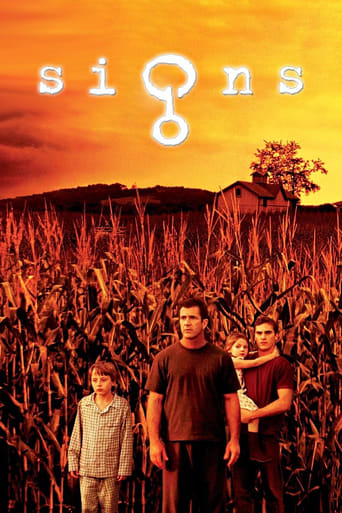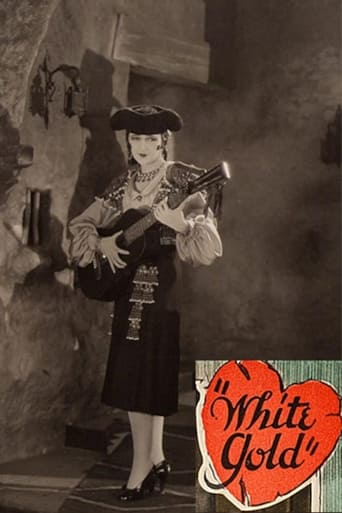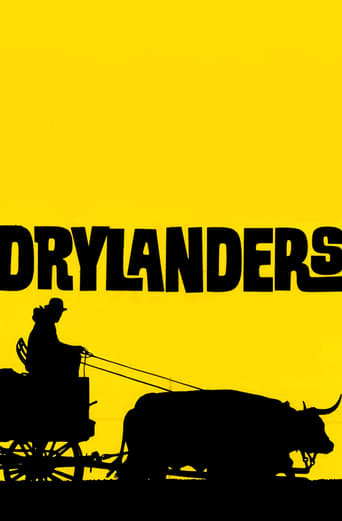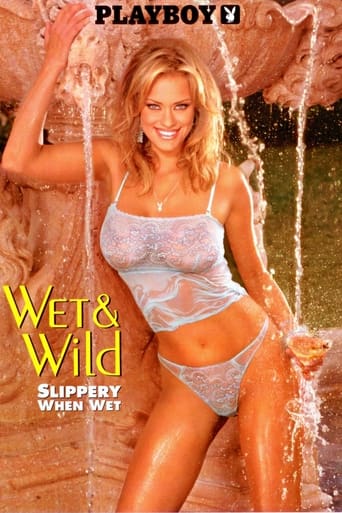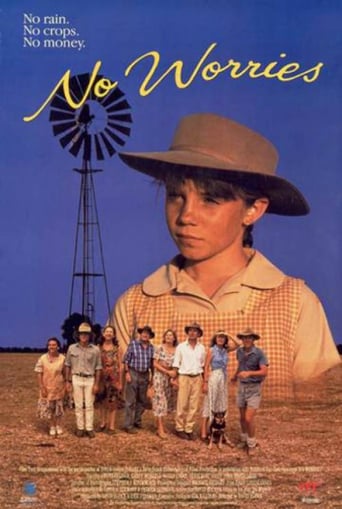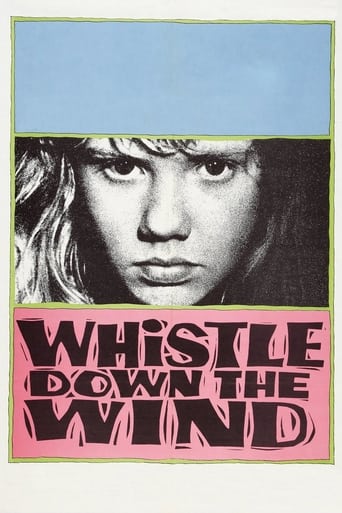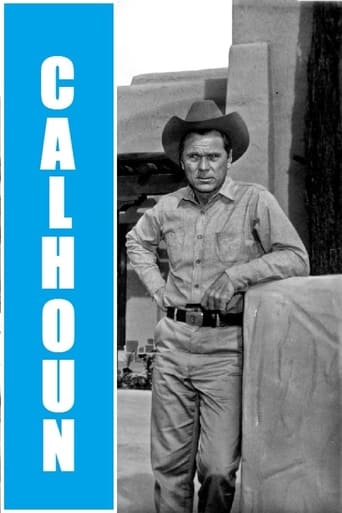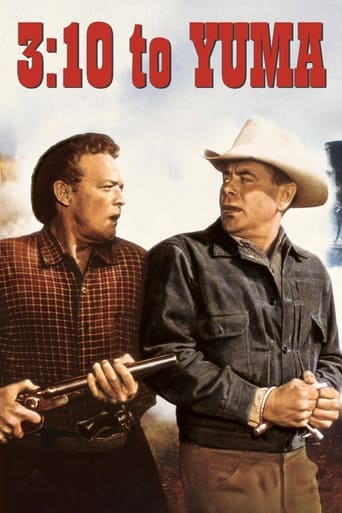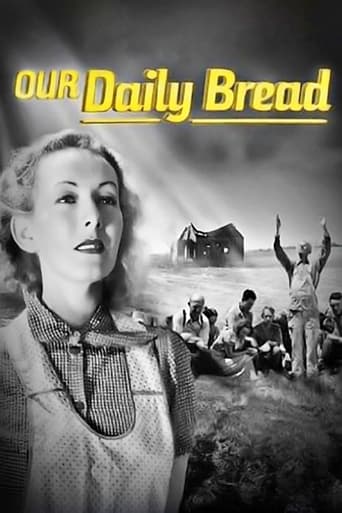

 Watch Now
Watch Now





Our Daily Bread (1934)
 Watch Now
Watch Now





John and Mary Sims are city-dwellers hit hard by the financial fist of The Depression. Driven by bravery (and sheer desperation) they flee to the country and, with the help of other workers, set up a farming community - a socialist mini-society based upon the teachings of Edward Gallafent. The newborn community suffers many hardships - drought, vicious raccoons and the long arm of the law - but ultimately pull together to reach a bread-based Utopia.
Watch Trailer
Cast


Similar titles
Reviews
Better Late Then Never
Good films always raise compelling questions, whether the format is fiction or documentary fact.
The joyful confection is coated in a sparkly gloss, bright enough to gleam from the darkest, most cynical corners.
This is one of the best movies I’ve seen in a very long time. You have to go and see this on the big screen.
Too bad the movie's laudable message gets dragged down by bad acting. That's been the traditional rap on this Depression era film, and critics are correct. Tom Keene's Golly, Gee Whiz! performance seems tailor made for Andy Hardy's older brother, but not for the embattled head of a farm co-operative. No doubt, director Vidor wanted a fresh faced non- celebrity for the inspirational role of Tom, but he should have kept auditioning before settling on Keene-- and what was Vidor seeing when he viewed the daily rushes which he likely did. The part requires an actor of Henry Fonda's calibre to bring off the various mood changes. Unfortunately Keene treats those scenes like a sulking teenager. Then too, the normally competent Addison Richards overplays the hostile stranger to a fault, which doesn't help. Fortunately, the winsome and polished Karen Morley has a featured part that anchors the rest of the cast. Nonetheless, I can see why Vidor was driven to make the film. Depression era audiences needed reminding that they could re-establish their livelihoods by combining skills instead of waiting for the financial markets to get their act together. After all, our daily bread ultimately depends not on the money changers or financial firms, but on cooperative labor working to keep production going for mutual benefit. Here, ordinary people are shown as having the necessary skills of farming, carpentry, care-giving, and the other know-how's necessary to sustaining a community. It's these folks and these skills that we can't do without when the economic chips are down. Note especially how the cooperative farm has no need for money in order to exchange goods and services. Then, no less than now, people are led to believe that no economy can function without money in some form, no doubt a comforting thought to the private bankers of the world. The movie however, shows that cooperation, not competition or money, is the ultimate background from which other economic forms develop.The fact that the cooperative farm had to reach into the money economy in order to survive only shows that their cooperative is still too small, and not that the idea won't work on a larger scale. I expect Vidor's effort was not favorably reviewed on Wall Street. It doesn't help the movie's down-to-earth message to sentimentalize plain folk as the script too often does. There's too much of the "happy peasant" atmosphere at times to be believable. (Note also how even the cheerless Addison Richard's criminal past is reformed by productive labor before he makes his sacrifice.) Nonetheless, I'd like to know where Vidor got his very ordinary looking people who don't even look like standard film "extras'-- a real boost to the movie's theme. Note too, how quickly the 4th of July rhetoric about "immortal democracy" is dismissed by the refugees as being the cause of their problems and not the solution. That's certainly an unexpected point to ponder. The fact, however, that they turn decision-making over to a single individual may be a naive reflection of developments in European fascism at a time when Germany and Italy were turning to strongmen as their solution. All in all, this is one of the more thought-provoking movies to emerge out of that turbulent period. Then too, its message is no less important now than it was then. For all that apparently aimless rolling in the mud at movie's end is more than just an expression of unbounded joy. It's a near-religious communion with the rich moist earth from which we spring and on whose bounty we still depend. For the basic fact is that mother earth and those who work it continue to feed, shelter, and clothe the rest of us, no matter how far the movies, TV and super-slick celebrities may remove us from that homely truth. Thanks, King Vidor, for the celebration and the much needed reminder.
Hollywood in the 1930s was a great era for collaboration, under the steady guidance of the studio system. It wasn't an age in which independent filmmakers could thrive, but by and large they didn't need to since studio output was of such high calibre. And yet, there were still times when producers and directors had such a burning desire to get a project off the ground that they just had to strike out on their own. The director, producer and indeed the writer of Our Daily Bread is King Vidor, a man of such good sense, knowledge and professionalism that he was able to make a picture that is head and shoulders above the typical indy feature.With neither studio backing nor stacks of cash, Vidor couldn't get the perfect set-up. Most of the cast are bit players or B-movie stars, so they are a rough bunch, but nevertheless carefully chosen. Lead man Tom Keene I have only seen in one other lead role, and that is in the DeMille silent The Godless Girl, where he is billed under his birth name of George Duryea. Like many silent stars his career dwindled but never quite fizzled out. His voice and manner bear more than a passing resemblance to James Stewart. He doesn't have half the talent, but he has that same honest charm and boyish enthusiasm. He really comes into his own when making a speech and whipping up the crowd – close your eyes in those scenes and you could almost believe it was Jimmy himself. Karen Morley was a fairly prominent character actress, and while she is not outstanding she is not conspicuously bad. Barbara Pepper fulfils the typical bad girl role, and isn't really required to have any more dimension than that. Addison Richards is a little wooden but certainly has presence. And John Qualen is always entertaining, and he proves himself fully able to expand his silly Swede persona beyond a mere comic relief caricature.And Vidor was lucky with his collaborators. As well as securing the services of a competent technical crew, he managed to get nine-times Oscar winner Alfred Newman, before he became Fox's in-house composer and was just a jobbing musical director. Newman's score for Our Daily Bread is delicately touching in a way that film music rarely was, and the massive orchestral finale he provides gives the picture a truly symphonic feel. It is clear the composer absolutely understood the necessary tone, and he is undoubtedly the most crucial contributor after Vidor.But what about Vidor himself? As always his work is supremely beautiful, and he directs with both heart and head. He begins the picture with cramped interiors, with little space between camera, players and the back wall. In the earliest scenes on the farm the space is still not properly opened out – the camera tends to point towards the ground and trees block the horizon. Only when the commune is established and the land cultivated are we hit with the full majesty of the outdoors. These are typical Vidor shots – sublime, sweeping, almost surreal landscapes that seem to call to something deep within us. As the picture progresses we move from straightforward realism into cinematic fantasy, with montages, aesthetic imagery and an increasingly prominent musical presence.I haven't yet touched on why Vidor – a respected industry insider with a healthy career at MGM – had to do Our Daily Bread off his own bat. It was of course too politically controversial at the time for the majors to consider. It's a shame he couldn't have done it with studio backing, and that it was virtually ignored in its day. And yet such is Vidor's determination he has pulled off a production that may not be entirely smooth but at least has no gaping flaws. And as for the politics, whether or not it represents a crazy dream or an attainable paradise, Our Daily Bread's appeal should be universal, because it is above all else a stirring and evocative paean to human endeavour.
Most of the comments about this film take Tom Keene to task as being alternately wooden and over the top. My belief is that Vidor was well satisfied with his performance. After all, this is not a great leader or a living saint. He is everyman. He doesn't really know how to be a leader of men. He probably married is wife out of high school with no experience with a woman of the world. Sure he's petulant; he's not a tower of strength. Without Louie the project was doomed from the start. I found his performance just right.And watching it again after some years I must agree that the ending is one of the finest, if not the finest, ever put on film. The lack of music while digging (showing just how grueling the work is)and then the wonderful score as the water starts flowing, perfectly complements the action.
"Our daily bread" is some kind of follow-up to "The Crowd" (1928).Not only there is not work in the city anymore on account of the economy,but city is evil ,as temptress Sally shows.I love the way King Vidor tackled the subject : the society's rejects's plight after the Depression.He never loses his sense of humour ,even in the most dramatic scenes: John Sims trades his small guitar for a scrawny chicken,the farm is sold for 1.85 dollars ,etc"Our daily bread" is the new society in miniature Jim built with a little help from his pals .Every human being counts,a violin player is as useful as a carpenter.Politic is not much talked about;the word "socialism" is uttered once or twice ,but the keyword is " cooperative" ."Let's stand together" is their motto.It culminates in the last sequence,one of the strongest of all time !Songs,prayers,a bit of utopia but a lot of human warmth and love!Like this ?Try these ..."le Belle Equipe" Julien Duvivier 1936"Grapes of Wrath" John Ford 1940



